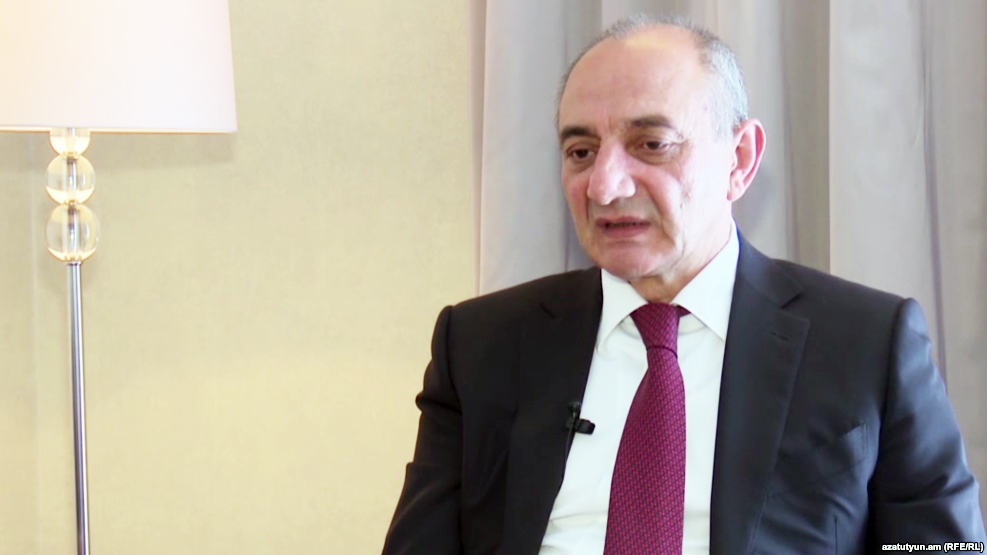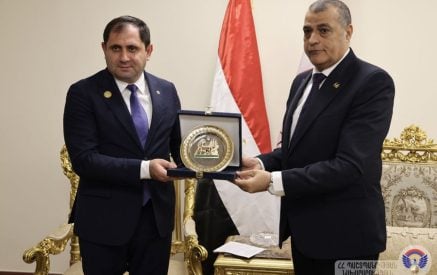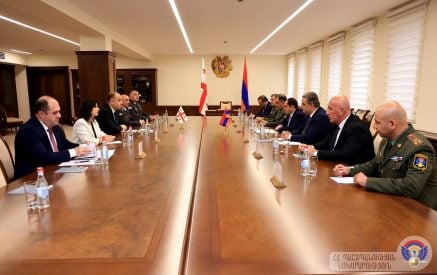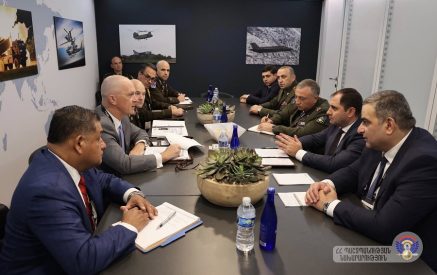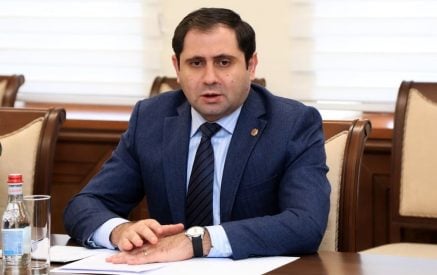Pago Sahagian, the president of Nagorno-Karabakh, believes it will take a “reasonable” compromise to settle the long-running Armenian-Azerbaijani dispute over the status of the region now controlled by ethnic Armenians.
“We are prepared for [mutual] concessions if they do not disturb our country’s security, if they are not creating opportunities for our adversary to launch new attacks against us,” Sahakian said in an interview with the online newspaper of the French Parliament.
According to the Karabakh leader, it was the “Armenophobic ideology” of the government in Baku that had paved the way for the outbreak of fresh hostilities and new loss of life in Nagorno-Karabakh earlier this year.
More than 100 Karabakh Armenian soldiers, combatants as well as civilians were killed in four-day clashes in early April in which Azerbaijan also admitted dozens of casualties. Loss of life at the heavily militarized line of contact between the conflicting sides occurred albeit at a much smaller scale before and after the brief war.
Read also
“A new round of talks aimed at solving the Karabakh problem will open if Azerbaijan honors the 1994 ceasefire agreement, if Karabakh rejoins the negotiations and the psychological barriers caused by Azerbaijan’s revanchist policy are overcome,” the Karabakh leader stressed.
“Azerbaijan should be able to give up its chauvinistic policy towards the Armenians of Karabakh and its futile gamble
Azerbaijan refuses to conduct direct negotiations with Karabakh’s ethnic Armenian authorities despite the fact that Stepanakert was one of the signatories of the Russian-brokered truce 22 years ago.
The presidents of Armenia and Azerbaijan, Serj Sarkisian and Ilham Aliyev, have met twice since the latest escalation of tensions in Karabakh to try to revive their peace talks that until then were conducted around the so-called Madrid principles – a set of proposals presented to the conflicting sides by Russia, the United States and France as the three nations co-heading the Organization for Security and Cooperation in Europe’s Minsk Group.
The principles that have not yet been agreed by Armenia and Azerbaijan basically envisage an interim status for Karabakh with an opportunity of a referendum at some future date in exchange for the return of the territories surrounding Karabakh to Azerbaijani control. The peace proposals ensure the right of all internally displaced persons and refugees to return to their former places of residence and suggest international security guarantees, including a peacekeeping operation.
The latest Sarkisian-Aliyev meeting was hosted by Russian President Vladimir Putin in St. Petersburg on June 20 and was followed by speculations in Armenian media that Moscow was seeking to persuade Yerevan to agree to territorial concessions to Azerbaijan in exchange for much vaguer guarantees than even those offered under the Madrid principles.
This, according to some Armenian observers, fitted the pattern of Moscow’s growing ties with Azerbaijan and its purported aspirations to see the oil-rich Caspian nation join its post-Soviet integration project – the Eurasian Economic Union – of which Armenia has been a member since last year.
Officials in Yerevan and Stepanakert have dismissed the speculations. Addressing senior members of his government as well as leading representatives of the Armenian society on August 1, President Sarkisian reiterated that he excluded unilateral concessions in the resolution of the Karabakh conflict.
“Karabakh will never be part of Azerbaijan. Never. I repeat once again: it is out of the question. I have dedicated my entire adult life to this. To get to the solution acceptable for my nation, I have always been prepared to sacrifice any post and my very life. It is like that today, it will be like that tomorrow,” Sarkisian stressed.
In his latest interview, Karabakh’s Sahagian expressed his conviction that the international recognition of the region’s independence from Azerbaijan will continue in the near future and will be more successful than before, which, according to him, will have a positive impact on stability in the South Caucasus.
Since 2012, seven American states, one Australian state and the parliament of the Basque Autonomous Community of Spain have passed bills and motions in favor of Karabakh’s independence from Azerbaijan. No UN member state, however, has recognized Karabakh’s independence to date.




















































